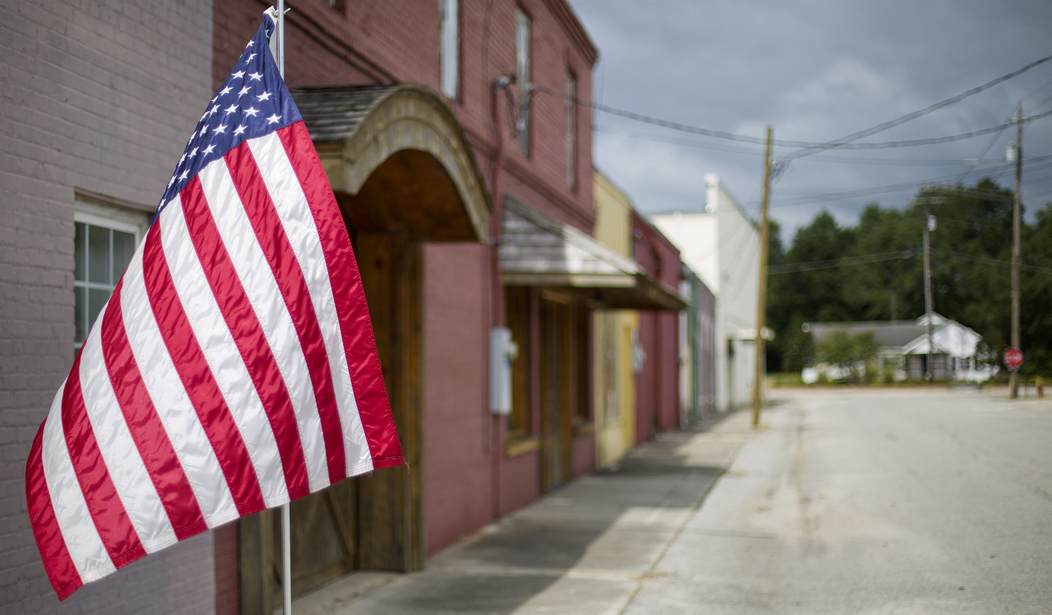Christopher Rufo didn’t mean to make a movie about religion. He set out to make a documentary about the lives of people in what he calls “forgotten America,” people the economy had left behind. Trillions of dollars in government aid hadn’t changed their lives. The number of poor hadn’t gone down. The cities that lost their industries 50 years ago hadn’t bounced back.
He found that the real source of hope for the poor in these cities isn’t government spending, but the social institutions that gave people purpose, meaning, and a real community. Highest among these are the churches.
His documentary America Lost recently aired on PBS, a rare conservative appearance on that reliably liberal network. It tells the stories of three cities after decades of decline. It begins with the white working class of Youngstown, Ohio, “the poorest city in America,” where the steel industry collapsed in the ‘70s. It moves to the black ghettos of Memphis, Tennessee, which also lost its major employers. It ends in the Latino and black ghettos of Stockton, California, a small city in central California that became famous a few years ago by becoming the largest American city to go bankrupt.
Rufo directs the Documentary Foundation, which produces “storytelling for a free society.” Among his other movies is an award-winning documentary called Age of Champions, telling the story of five people — including an 86-year-old pole vaulter and a 100-year-old tennis player — who competed in the Senior National Olympics. He’s also a fellow at the Discovery Institute’s Center on Wealth and Poverty and the Heritage Foundation.
Yet people survive, even with the challenges. Rufo doesn’t portray the people in these towns merely as victims. He wants to highlight the people who fight back. “Even in the bleakest situations, human beings have agency,” he insists. “We all have the capacity to make life a little better.”
Recommended
Rufo’s a free-market partisan, and America Lost doesn’t tell quite the story he thinks it does. “At heart the crisis of American cities is a crisis of meaning,” he says early in the documentary. “All the old structures that once provided a solid foundation: faith, family, work, and community, have slowly fallen apart. The real problem is not just economic, but deeply personal, human, even spiritual.”
He delivers the movie’s lessons in several long voiceovers, but not in the stories he tells. The movie shows people in trouble, and a few people who struggle to get out of trouble. The movie treats their situation as something that just happens, without considering the system in which it happened, and happens. It never mentions the effects of race or the sometimes very stark limits to human agency. It tells the poor to “rediscover community,” but does not address the forces that have shattered it.
Government is treated only as a failure, though even in the movie its value is shown. One of the people America Lost show struggling to succeed depends for her life on very expensive treatment for MS, which no private entity could supply.
Yet the stories Rufo tells are moving and sometimes revealing of the shape of people’s lives. They push back against the assumption mainstream liberals can have that the poor are entirely victims, without agency. They point to the complexity of the subjects’ world.
One is a man in Youngstown who goes through wrecked, abandoned houses looking for things he can sell to a recycling center. He gets $42 for one day’s work. People’s “dreams ain’t coming through and they’re getting cast away,” he explains. “It’s going to be up to the individual, to whoever’s going to hold their ground, to make their own space better.” He also uses the things he finds to create collages and paintings and tries to sell those.
In Memphis, a young black man named Joseph talks about his two brothers being killed. He’s been in prison. He doesn’t want to go back. “My brothers were my friends, man,” he says, as a tear runs down his cheek. “Losing these two brothers the way I have, the way we grew up, how close we were, man, that’s a pain, man, that’s really hard to bear. But through the grace of God, I made it, I’m still here, and I’m here for a reason.”
Michael doesn’t want to go back to prison either. A heavily tattooed Latino young man living in Stockton, he has a wife and daughter, but can’t find a job. “It breaks my heart inside to sometimes I can’t provide for my family.” Life in the city feels like a pressure cooker, he tells a counselor at a ministry called Friends Outside. “All those times I was arrested, those times I went away, it’s like the pressure cooker just blew.” He’s left picking up the pieces, he says.
It sounds half like an excuse or a reason to give up. The counsellor gently corrects him and challenges him to begin each day with a purpose. He also comforts him. Taking care of a family, he says, “is a responsibility that most men in this population we come from cannot maintain.” It gets too stressful and they give up. “But you’re not going to give up.” Michael nods. Later he’s shown getting a job with a company willing to hire someone with a record, and keeps at it. Near the end of the documentary, he and his wife have a second child. His life seems to be working out.
It’s in Stockton that Rufo comes to see the importance of social institutions, especially religious ones. He hardly mentions churches in Youngstown or Memphis. Pentecostal pastor Armando is shown telling the congregation, including Michael, that Jesus will pick them up, even if they fall 100 times. He tells Rufo that everyone who comes to his church, “they come in hurting, they come in empty, they come in broken, they come in need of a miracle, in need of a healing, in need of a touch, in need of someone loving them.” If they find that, they can change their lives.
“We’ve tried to solve our problems through top-down public policies,” Rufo says in the concluding voiceover. Twice he wryly intercuts his explanation with clips of politicians who promise economic revival but don’t deliver. In one, Clinton, Bush, and Obama are shown speaking in Youngstown, promising economic revival. Obama promises a new one million square foot plant and all the jobs that would bring. It was never built.
“I’ve learned that real change doesn’t happen from the top down. It happens from the inside out,” he continues. “It starts within each individual human heart and then slowly works its way outward.” That requires helping the poor “rediscover the traditional sources of meaning: faith, family, work, and community, and adapt them to the modern condition. As a society, we must ensure that being poor doesn’t mean being disconnected from the primary sources of human happiness, so that those at the bottom can lead dignified, meaningful lives.” While remaining, one notes, at the bottom.
“If I didn’t have a family, I wouldn’t be alive right now,” Michael says. His wife and children and the life they’ve created give him a reason “to keep moving forward. They give me a purpose. The thing I’ve been looking for my whole life is to be here for them. … That changed my heart. It’s a miracle.”

























Join the conversation as a VIP Member